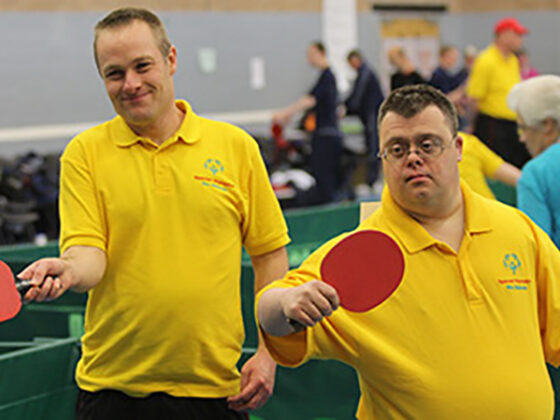As new findings published today by Activity Alliance reveal the growing impact of the pandemic on Disabled People, Table Tennis England is preparing to share our work on a new Diversity and Inclusion Strategy.
Just over 7 in 10 Disabled People (72%) who responded to a YouGov poll commissioned by Activity Alliance agreed that the coronavirus pandemic has made sport and physical activity less fair for disabled people.
The poll also revealed that 30% of Disabled People agree that Disabled People have the same opportunity to be active as non-disabled people.
Table Tennis England recognises that as a sport, we need to do more to ensure table tennis is accessible and welcoming for disabled participants, volunteers and coaches.
At our National Conference for clubs, coaches and volunteers on June 5, we will be sharing our work to date on a new Diversity and Inclusion Strategy.
Click here to book a place at the Conference
This follows work bringing together various focus groups across key areas, including disability. The strategy will set out steps to help improve accessibility across the sport.
We also launched a Disability Awareness Online Training Module this year, a course which provides information to support volunteers, coaches and organisers to feel more confident working with Disabled People in a table tennis setting by making sessions more accessible and showing ways of communicating with players, whilst meeting their individual needs.
We have continued to offer this course free of charge for members and you can book by clicking here.
We are also looking for Disabled People who would be happy to share their own lived experience in table tennis. Whether this helps us to better understand the challenges disabled participants can face, or whether you can share your own positive experiences as a disabled participant, we would love to hear from you. Please send your experiences to [email protected]
* Alongside the survey findings, Activity Alliance is launching a new strategy, Achieving Fairness. Despite a slight improvement before the pandemic, disabled people remain twice as likely to be inactive as non-disabled people and the strategy sets out a clear ambition to close this gap within a generation. Two clear goals will drive the strategy forward – changing attitudes towards Disabled People and embedding inclusive practice in sport and activity.





